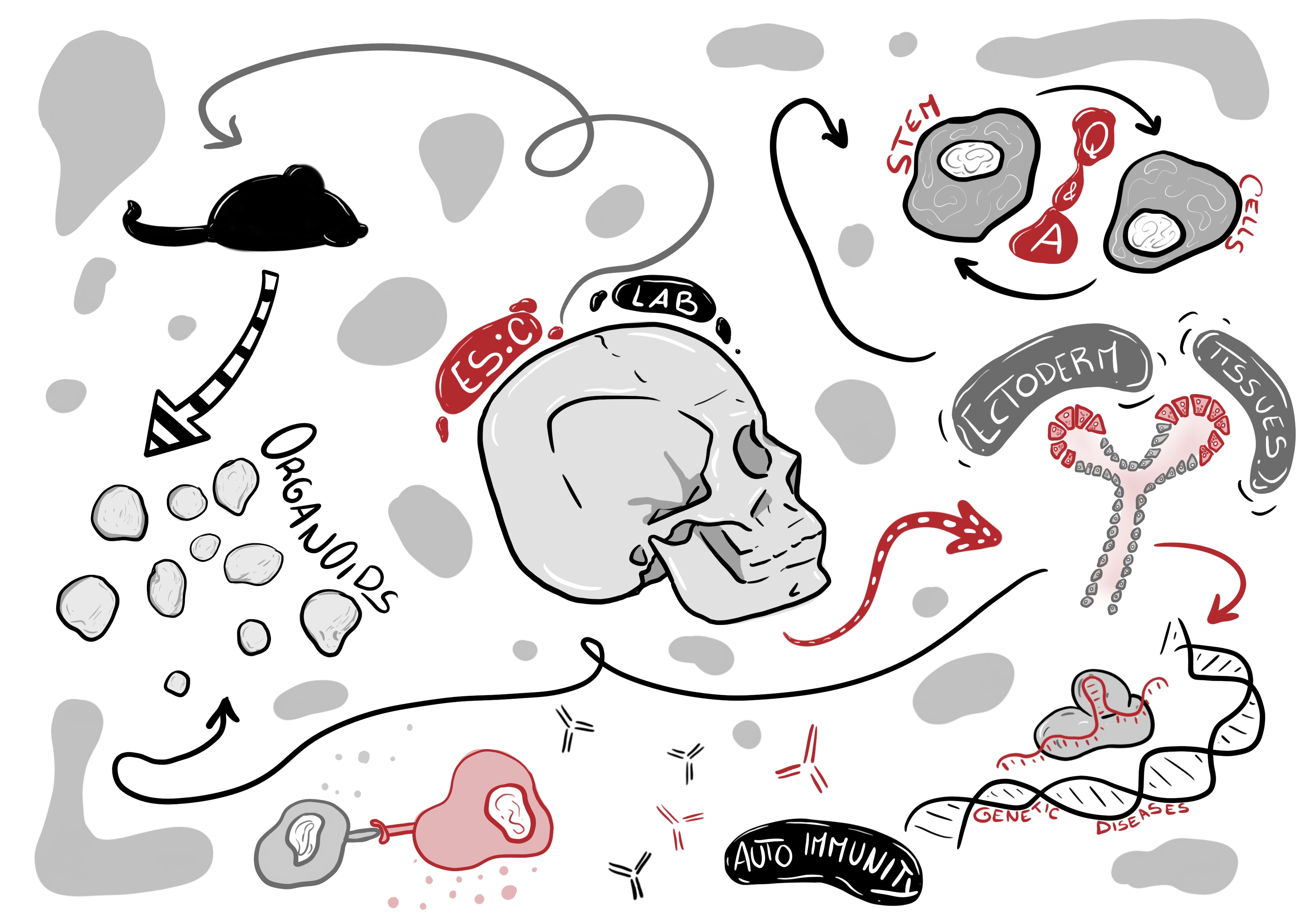
Ongoing projects
Project 1. Adult stem cells in the squamous epithelium
The mucosal squamous epithelium lines the beginning and the end of the aerodigestive tract, such as the oral cavity, esophagus, vagina, and rectum. Nevertheless, the biology of adult stem cells and their niche in the mucosal squamous epithelium remains poorly defined compared to other organs. We aim to reveal the characteristics and clonal dynamics of adult stem cells in the squamous mucosa at physiologic states and tumorigenesis. We are using mouse genetics, high-throughput sequencing, genetic engineering, and unbiased lineage tracing to explore this subject.
Project 2. Oral cancer in vivo model development
Oral cancer invades critical and vital structures of the head and neck, limiting surgery benefits and threatening the patient's survival. Nevertheless, oral cancer has gained less scientific attention than other prevalent cancers, which has led to limited therapeutic options and research models. We are developing specific genetically engineered mouse models of oral squamous cell carcinoma to fully understand and follow tumorigenesis of the head and neck.
Project 3. Oral mucosa and cancer organoid development and biobanking
Although we broadly categorize cancers by histology and prominent molecular signatures, cancer is a highly heterogeneous and complex disease. Every cancer has a personalized pathologic basis which easily fails to respond to universal therapeutics. Organoids are in vitro, ex vivo systems that can capture much of the heterogeneity of each cancer, beneficial for personalized therapy. We develop and biobank patient- and mouse-derived organoid models for disease modeling and personalized drug screening in collaboration with clinicians.
Project 4. Immune evasion strategies of cancer during quiescence
Cancer is easily regarded as a proliferative state. However, cancer is composed of heterogenous clones that survive in the challenging microenvironment each with a respective adaption mechanism. Quiescent cancer cells are rare in number but are resistant to conventional therapy leading to a poor clinical prognosis. We are investigating the immune evasion mechanisms of quiescent cancer cells based on reversible MHC-I regulation.

